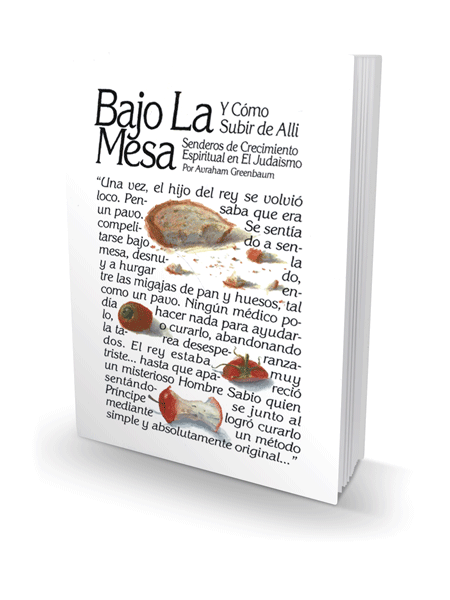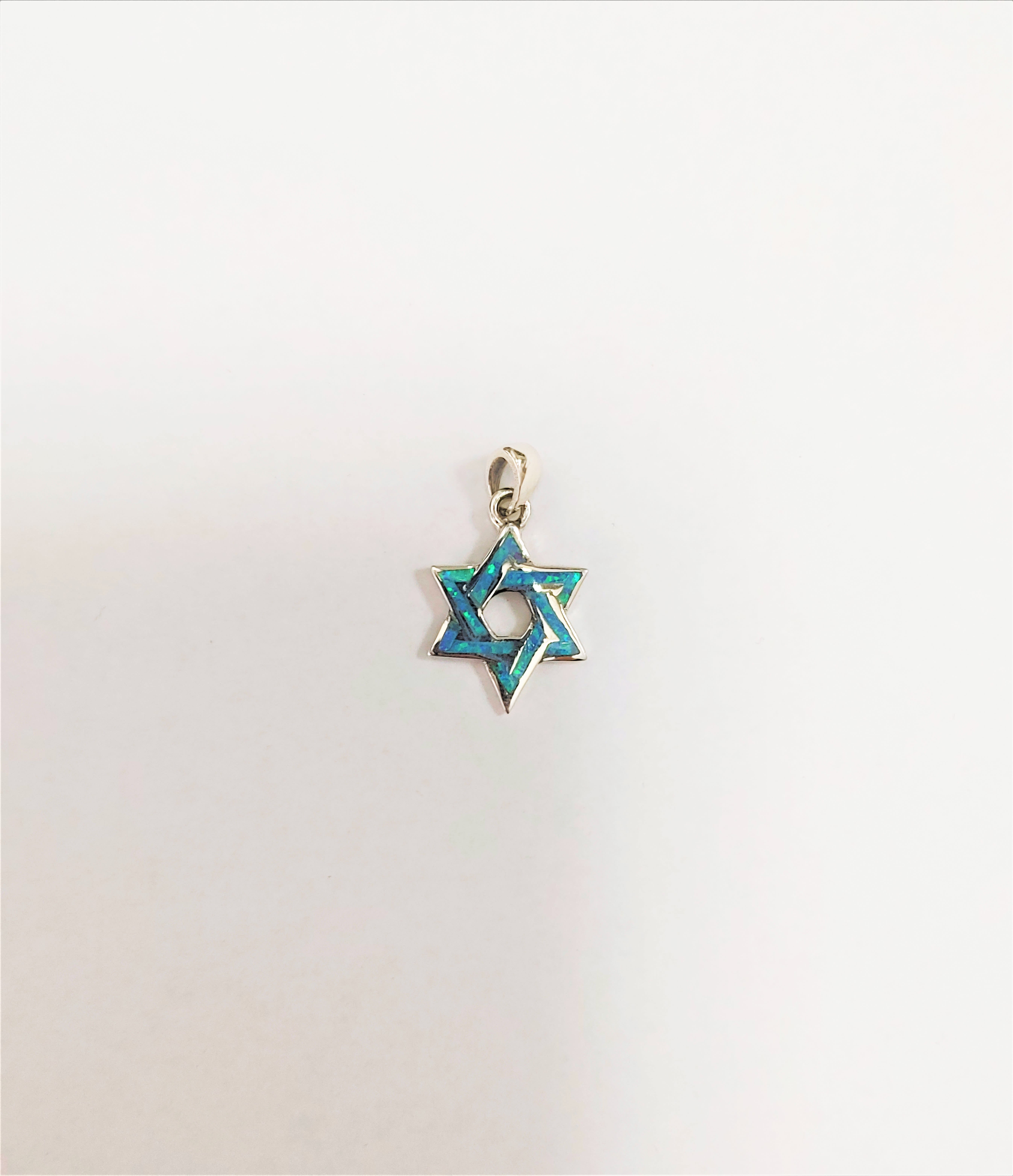
Self Correction
The most important prerequisite for self-correction is self awareness. The first thing we all need to know about ourselves is that each of us has a...

The most important prerequisite for self-correction is self awareness. The first thing we all need to know about ourselves is that each of us has a yetzer hara, or evil inclination.
Many people are frustrated or intimidated by their evil inclination. We often hear, "If only I didn’t have such a strong evil inclination…", or "Why did Hashem have to weigh me down with an evil inclination?"
The evil inclination is a necessary part of our spiritual anatomy just as two arms and two legs are necessary parts of our physical anatomy. Our principal task on earth is to correct ourselves by channeling the negative energy of the evil inclination into positive endeavors, such as Torah learning and the fulfillment of mitzvot.
Teshuva, which literally means "returning," is the process of elevating and converting our animal drives into spiritual power. No other creation on earth is capable of transforming the material into the spiritual. As such, the Jew has a unique task on earth – with an animal body, he or she is capable of surpassing an angel and achieving lofty spiritual heights.
Self-correction, the refinement of the evil inclination, is a war with constant ups and downs. Like in a war, we win some battles and we lose some. The stronger a person gets, the stronger his or her evil inclination becomes as well. One wonders why – shouldn’t the evil inclination be weakened in time? The answer is no. As a person makes spiritual gain, he or she meets harder opposition; this is for their ultimate benefit in order to enable them to make further spiritual gains and to increase their ultimate reward in the World to Come. The same principal applies in professional athletics – the better an athlete becomes, the more difficult the competition he competes against.
One should never be discouraged by the evil inclination, just keep on fighting! A winning pitcher might easily shutout all of his opponents in the minor leagues, but then lose a few games when he moves up to the major leagues. Anyone knows that a 50-50 win-loss record in the major leagues is much more admirable than a 90-10 win-loss record in the minor leagues. Therefore, setbacks remind us that we have a job to do and that we’re fighting tough adversaries. By striving against fierce resistance, we make formidable spiritual gain and refine our souls.
Hashem Helps
After we’ve become aware that we each have an evil inclination, the second principal we need to know is that we are incapable of overcoming it unless Hashem comes to our aid. This necessitates us to seek Hashem’s help.
The main way to overcome the evil inclination and to strengthen ourselves in spirituality is to pray to Hashem, to ask for His help and guidance in avoiding sin and in making the right choices. Hashem helps those who seek His help.
Some people punish themselves, chastise themselves, or become totally disappointed with themselves when they do something wrong. That’s a self-destructive mode, which leads only to depression and despair. If a boxer would become depressed when hit by his opponent, he’d soon be knocked out altogether. Each of us, even the greatest tzaddikim, has setbacks from time to time. Disappointment in ourselves doesn’t accomplish a thing; asking for Hashem’s help does!
What Does Hashem Ask from Us?
The Gemorra says, "Hashem doesn’t complain about His creations" (tractate Avoda Zara 3a). This means that Hashem doesn’t make demands that a person is incapable of fulfilling. Hashem knows exactly who each of us is, and what we’re capable of accomplishing in this world.
Cherished reader, it’s not possible to demand that from this moment on, you shouldn’t sin anymore, for at this stage of your life, there may be certain laws that are difficult for you to observe. But, you should at least ask for Hashem’s forgiveness for not yet observing them! If you don’t strive to fulfill the Torah’s commandments, you never will!
Hashem wants each of us to make the first step in bettering ourselves. Once we make the effort, He comes to our assistance.
Teshuva is Happiness
The only way to make teshuva is by being happy.
A sad and depressed person has no control over his or her thought process. Without mental composure, one won’t be able to attain emuna and make teshuva. A sad and depressed person is like a prisoner of war, captured by the ruthless evil inclination. Depression and holiness are mutually exclusive. For that reason, the evil inclination wants a person to be constantly down in the dumps.
One asks, so how can I be happy? The answer is surprisingly simple: A person is happy when his or her soul is gratified, and the soul is gratified when the person performs Hashem’s Will. Since teshuva brings a person to perform Hashem’s Will, teshuva also leads to gratification of the soul and to happiness.
The 24 Heavenly Courts
There are 24 Heavenly Courts that judge a person every single hour of every single day. A person that does good deeds receives a positive verdict; the soul immediately reacts to a positive judgment in the Heavenly Court with optimism and happiness. The opposite also holds true; one who incurs an unfavorable verdict that resulted from a negative action feels sadness, pessimism, and a heaviness of the spirit.
Rosh Hashanah, the New Year of the Jewish calendar, is the annual Day of Judgment, when it’s decided whether a person will live or die, how much annual income he or she will have, and other general factors. This doesn’t contradict the fact that a person is judged every hour of the day. For example, on Rosh Hashanah, it’s decided that a person will earn two thousand dollars on January 8th; on the morning of January 8th, it’s decided how that person will earn the money, whether in joy or in sorrow.
The following Chassidic story further explains the concept of daily and annual judgment:
The Baal Shem Tov met an elderly water-carrier and asked him how he was. The water carrier smiled a semi-toothless smile, and praised God for giving him once more the strength to earn a respectable day’s living.
A few days later, the Baal Shem Tov met the same elderly water-carrier. This time, the old man barely moped along under his yoke and two buckets, as if he were carrying the entire world on his shoulders. With a long face, he complained to the Baal Shem Tov about his difficult lot in life.
The elderly man’s extreme change of mood surprised the Baal Shem Tov. After a moment’s contemplation, the Baal Shem Tov smiled and thanked the water-carrier. "My friend, you’ve just answered a difficult question I had while learning tractate Rosh Hashanah. The Mishna says that a person is judged on Rosh Hashanah, yet the Gemorra says that a person is judged every day and every hour. The question in my mind was, if a person is judged on Rosh Hashanah as to the outcome of the entire year, why be judged again every day and every hour?"
The Baal Shem Tov then explained that the hourly and daily judgments determine the way a person will receive what’s been predetermined in the beginning of the year; if one’s actions are favorable, they receive their lot happily that particular hour. If their deeds are otherwise, then they get what they deserve with sadness, depression, or aggravation on that particular day and hour.
* * *
The day that the water-carrier was happy and optimistic was a day when his actions received a favorable judgment in the Heavenly Court. He didn’t earn any more than he did on any other day, nor did he toil any less. Yet, he felt gratitude to Hashem and joy in his heart. A few days later, having apparently received an unfavorable judgment from the Heavenly Court for less than desirable deeds, his mood plummeted and his work became torture.
In any event, this is a good place to interject that a person can change that which has been predetermined on Rosh Hashanah by teshuva, prayer, and charity.
To be continued…














Tell us what you think!
Thank you for your comment!
It will be published after approval by the Editor.